Fighting racism requires Christians and non-Christians to work together, panelists say – Baptist News Global

[ad_1]
Black Christians and Black unbelievers must overcome their mutual distrust and hostility in order to collaborate in addressing racism and other challenges facing African communities, scholars and religious leaders said during a two-day webinar, “(Dis)Belief: Reimagining the Religious Landscape of Black America.”
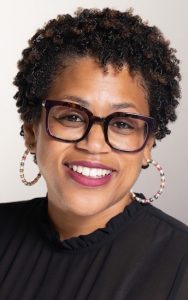
Sabrina Dent
“If we who are gathered here today are committed to affirming the dignity and worth of every human being, we must be intentional about our efforts to engage in difficult and uncomfortable conversations about religion, belief and unbelief,” said Sabrina Dent, director of the Baptist Joint Committee for Religious Liberty’s Center for Faith, Justice and Reconciliation, which co-hosted the Oct. 26-27 virtual gathering with the Center for Engaged Research and Collaborative Learning, also known as CERCL.
While individual sessions drilled into topics such as Black church and identity, the beliefs of African American secular humanists and the relationship between worship and Black unbelief, the program was designed to foster dialogue between nontheists and Black church leaders and to inspire believing and nonbelieving participants to promote religious and racial freedom in their communities.
Religion ‘never a weapon’
Dent, an ordained Baptist who identifies as religiously unaffiliated but spiritual, acknowledged in her opening remarks that humanists, agnostics and atheists are as important to Black communities as are churches.
“Religion should never be used as a weapon to discriminate against any group or individual because of how they identify who they love, what they believe or don’t believe, or how they make decisions about their personal health care options,” she said. “Nor should religious ideologies be used to challenge a person’s ability to fully participate in our democracy by restricting voting rights.”
Neither churches nor any other single element of the Black community is solely equipped to push back against the social, political and existential threats African Americans currently face, said Anthony Pinn, a secular humanist and founding director of CERCL.
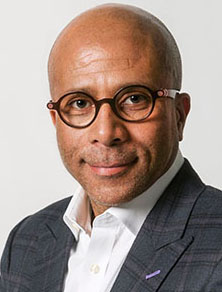
Anthony Pinn
“The in-fighting, the animosity that typically defines interaction between Black believers and Black atheists, humanists, freethinkers and skeptics is of no use. It might provide a truncated sense of superiority, but it does nothing to safeguard a complex and diverse framing of Black life. It fails to offer a new vision for a troubled world,” said Pinn, professor of humanities at Rice University and co-author of A Master Class on Being Human: A Black Christian and a Black Secular Humanist on Religion, Race, and Justice.
Balancing belief and unbelief
Another goal of the discussion was to work at finding a balanced perspective about faith and unbelief, he said. “Yet underlying this conference isn’t a call to surrender distinctiveness, to passively embrace the philosophical or theological orientation of those with whom we have long disagreed, but rather to dig deeper, to forge approaches to collective life that draw from our strengths and recognize elements of a shared range of concerns.”
Yet achieving that balance requires Black Christians to see past the popular misconceptions held throughout the culture about atheists, agnostics and other nontheists, said Christopher Cameron, professor of history at the University of North Carolina in Charlotte and author of Black Freethinkers: A History of African American Secularism.
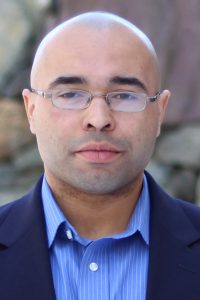
Christopher Cameron
One of those misnomers is that nonbelievers are incapable of being truly happy, fulfilled or moral without a relationship with God and “that atheism and secular humanism represent a rejection of Black culture and an embrace of European and Western ideals,” he said. “Here, the argument often goes that the Black church has been the central institution within Black communities since the time of slavery, and especially during the Civil Rights era. By rejecting the church, then, secular humanists are seen as rejecting their Black heritage and embracing European rationalism.”
Black humanism
During his first-day session, Cameron acknowledged not all church leaders embrace these misconceptions, but it is widespread enough to warrant addressing and countering, including by examining the history of Black humanism.
That movement emerged in the Antebellum period as a response to slavery and to the perceived shortcomings of Christianity in addressing that suffering.
Out of that context, Cameron said, “African American humanists believe that since this is the only life we have and there is no deity that created us or is involved in earthly life, human beings must take responsibility for improving their own world. … They believe in the power of reason and science to address human problems. They have an appreciation for Black culture and cultural production. And they believe in the importance of individual transformation and growth both as a value in and of itself and as a means of producing that societal transformation.”
Black church is vital
But the importance of the church to the health of Black communities should not be underemphasized, said Brianna Parker, CEO of the Black Millennial Café consulting and research group and author of I Still Believe in the Black Church: Using Data to Decode the Promise and Pain of the Black Church.
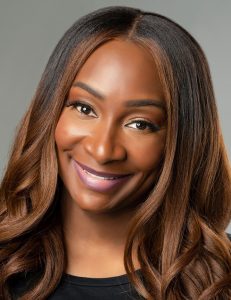
Brianna Parker
“Our communities are better because of the Black church. Our studies show us that the community has very clear and embedded expectations of the Black church,” she said. “A community without the presence of a Black church at its best should be protested as much as a community with a food desert.”
The “2021 State of the Black Church” report, however, found the number of Black people identifying as Christians is declining, Parker said. “Although not as drastically as others, and while Black people are still more likely than others to identify as Christian, we are now below Latino believers. This is worthy of exploration.”
The trend is partly driven by the rise of the culture wars and by the politicization and racializing of the faith by some white Christians, she said. “White evangelicals have changed what it looks like and feels like for Black Americans to blanketly identify as Christian. This immediately creates a PR issue.”
Engagement between nonbelievers and the Black church may also explain the rise in the number of spiritual-but-not-religious individuals in Black communities, she said. “While this number is a small percentage today of just a little above 10%, the significance is its presence in the data alone.”
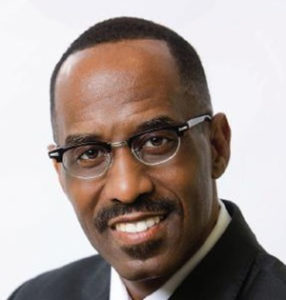
Kevin Cosby
The African American struggle against injustice cannot be sustained without a vibrant church and other institutions vital to healthy Black communities, said Kevin Cosby, president of Simmons College of Kentucky, senior pastor of St. Stephen Baptist Church in Louisville and author of Getting to the Promised Land: Black America and the Unfinished Work of the Civil Rights Movement.
The church and institutions such as Black businesses, families and fraternal groups have in many cases been degraded by integration efforts, Cosby said.
“In the minds of white America, who conceptualized diversity and equity and inclusion, inclusion equals white space. Blacks don’t need diversity, equity and inclusion but capitalization and empowerment.”
Doing that must include the revival and preservation of Black institutions, including the church. “The health and vitality of the Black community is predicated on the health and vitality of Black institutional space. You will never rescue or save the Black community independent of Black institutions. To the degree that Black institutions are healthy is to the degree that the Black community is healthy.”
[ad_2]
Source link
